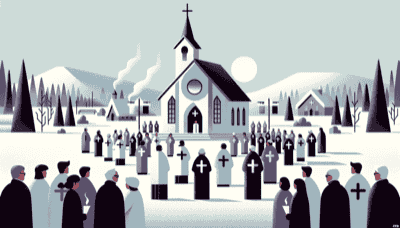We're here to help you keep count of the days to or since a date. Just click the button below and enter your chosen date to get started. Also choose the suggested days or search for a special day above #countingthedays

Ash Wednesday marks the beginning of Lent in the Christian liturgical calendar, a period of 40 days (excluding Sundays) leading up to Easter. It typically occurs in February or March and is observed by many Christians across Canada, including Catholics, Anglicans, Lutherans, and some other Protestant denominations.
Historical Roots: The tradition of Ash Wednesday dates back to the early Church when ashes were used as a symbol of repentance. The practice was formalized within the church by the 10th century.
Ashes: The central ritual involves the placing of ashes on the foreheads of participants in the shape of a cross. These ashes are usually prepared by burning palm branches from the previous year's Palm Sunday celebrations.
Symbolism: The imposition of ashes is a reminder of human mortality ("Remember that you are dust, and to dust you shall return") and an expression of sorrow for sins and faults.
Church Services: Many Christians attend special church services where they receive ashes on their foreheads. These services often include readings from scripture, hymns, prayers, and a homily or sermon focused on repentance.
Fasting and Abstinence: Ash Wednesday is also a day for fasting and abstinence in many Christian traditions, with followers encouraged to abstain from meat and limit their intake of food.
Reflection and Preparation: It is seen as a time to reflect on one’s life, make confessions if needed, and prepare spiritually for Easter. Some individuals may begin Lenten disciplines such as prayer or almsgiving.
In Canada's multicultural society, while many observe these traditions associated with Ash Wednesday, others may not participate but will be aware of its cultural significance among Christian communities.